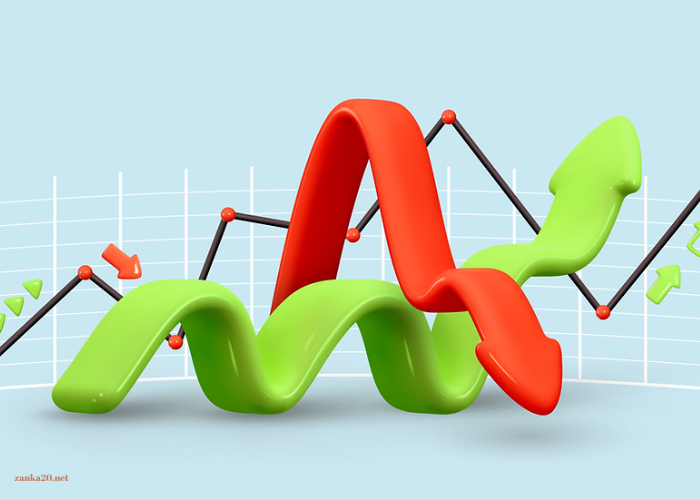In an era where technological advancements unfold at an unprecedented pace, businesses across various sectors are compelled to adapt and innovate to maintain their competitive edge. At the heart of this transformative wave lies the realm of advanced tech solutions. These cutting-edge technologies not only streamline operations but also catalyze industry progress by fostering efficiency, driving growth, and creating new opportunities. This article explores how advanced tech solutions are shaping the future of industries and why they are essential for navigating the complexities of the modern business landscape.
The Evolution of Advanced Tech Solutions
The term “advanced tech solutions” encompasses a broad spectrum of technologies, including artificial intelligence (AI), machine learning, blockchain, Internet of Things (IoT), and big data analytics. Each of these technologies plays a pivotal role in addressing industry-specific challenges and driving forward progress.
Artificial Intelligence and Machine Learning
AI and machine learning (ML) are arguably the most influential technologies in the current landscape. AI algorithms, capable of analyzing vast amounts of data at lightning speed, offer insights that were previously unattainable. Machine learning, a subset of AI, enables systems to learn and improve from experience without being explicitly programmed.
In practical terms, AI and ML are revolutionizing sectors such as healthcare, finance, and manufacturing. For instance, in healthcare, AI-powered diagnostic tools can analyze medical images to detect abnormalities with remarkable accuracy. Financial institutions leverage ML algorithms for fraud detection, risk assessment, and personalized customer service. In manufacturing, predictive maintenance powered by AI minimizes downtime by forecasting equipment failures before they occur.
Blockchain Technology
Blockchain technology, often associated with cryptocurrencies, is increasingly being recognized for its potential beyond digital currencies. Its core feature—decentralized and immutable ledgers—offers enhanced transparency, security, and traceability.
In supply chain management, blockchain enables real-time tracking of goods, ensuring authenticity and reducing the risk of fraud. In the financial sector, it streamlines transactions by eliminating intermediaries and reducing settlement times. Additionally, blockchain’s smart contract functionality automates and enforces contractual agreements, minimizing disputes and enhancing efficiency.
Internet of Things (IoT)
The Internet of Things refers to the network of interconnected devices that communicate and share data. IoT technology extends the reach of the internet to everyday objects, from smart home devices to industrial sensors.
In the industrial sector, IoT enables smart manufacturing, where machines and equipment are connected to monitor performance, optimize processes, and predict maintenance needs. In agriculture, IoT sensors monitor soil conditions and crop health, leading to more efficient farming practices. The applications of IoT are vast and continue to expand as technology evolves.
Big Data Analytics
Big data analytics involves the examination of large and complex datasets to uncover hidden patterns, correlations, and insights. The ability to analyze big data empowers businesses to make data-driven decisions, enhancing strategic planning and operational efficiency.
Retailers use big data analytics to personalize customer experiences and optimize inventory management. In healthcare, it aids in predicting disease outbreaks and improving patient care through comprehensive data analysis. The insights gained from big data analytics enable industries to anticipate trends and respond proactively to changing market conditions.
The Impact on Industries
Advanced tech solutions are not merely trends; they are driving substantial changes across industries. Here’s how they are influencing key sectors:
Healthcare
In healthcare, advanced tech solutions are revolutionizing patient care and operational efficiency. AI-driven diagnostic tools provide faster and more accurate diagnoses, while telemedicine platforms enable remote consultations, expanding access to healthcare services. Wearable devices and IoT sensors monitor patient health in real-time, facilitating early intervention and personalized treatment plans.
Finance
The finance industry is experiencing a paradigm shift due to advanced tech solutions. AI and ML algorithms enhance fraud detection, automate trading, and provide personalized financial advice. Blockchain technology streamlines transactions and reduces operational costs. Digital wallets and cryptocurrencies are reshaping payment systems, offering secure and convenient alternatives to traditional banking methods.
Manufacturing
Manufacturing processes are becoming increasingly automated and efficient thanks to advanced tech solutions. IoT sensors and AI-driven analytics optimize production lines, improve supply chain management, and reduce waste. Robotics and automation enhance precision and productivity, while predictive maintenance minimizes downtime and extends the lifespan of equipment.
Retail
Retailers are leveraging advanced tech solutions to enhance customer experiences and streamline operations. Big data analytics provide insights into consumer behavior, enabling personalized marketing and inventory management. AI-powered chatbots offer 24/7 customer support, while augmented reality (AR) enhances the online shopping experience. IoT technology facilitates smart shelves and automated checkout processes, improving efficiency and customer satisfaction.
The Challenges and Considerations
While advanced tech solutions offer numerous benefits, their implementation is not without challenges. Businesses must navigate issues related to data privacy and security, as increased reliance on digital systems exposes them to potential cyber threats. Additionally, the integration of new technologies requires substantial investment and may encounter resistance from employees accustomed to traditional processes.
To overcome these challenges, organizations must prioritize cybersecurity measures, ensure compliance with data protection regulations, and invest in training and change management initiatives. By addressing these considerations, businesses can harness the full potential of advanced tech solutions while mitigating risks.
Future Trends and Innovations
The future of advanced tech solutions is characterized by continuous innovation and evolving trends. Quantum computing, for instance, promises to revolutionize data processing capabilities, enabling complex calculations and simulations that were previously inconceivable. Augmented reality (AR) and virtual reality (VR) are expected to transform industries such as education, entertainment, and real estate by creating immersive experiences.
As technologies converge and new applications emerge, the landscape of advanced tech solutions will continue to evolve. Businesses must stay abreast of these developments and be prepared to adapt to remain competitive in a rapidly changing environment.
Conclusion
Advanced tech solutions are undeniably driving industry progress by enhancing efficiency, enabling innovation, and creating new opportunities. From AI and blockchain to IoT and big data analytics, these technologies are reshaping how businesses operate and interact with their customers. While challenges exist, the potential benefits far outweigh the risks, making it imperative for organizations to embrace and integrate these solutions into their strategies.
As we look to the future, the ongoing evolution of advanced tech solutions promises to bring even more transformative changes across industries. Businesses that invest in and leverage these technologies will be well-positioned to navigate the complexities of the modern world and achieve sustained growth and success.






Leave a Reply